In March and April, and across residencies ranging from four to six weeks, Jonna Gale, Rachel Anyo, Gaia Ozwyn, Aisha Olamide Seriki, and Joy Labinjo immersed themselves in Lagos and beyond, activating research, fieldwork, studio visits, and community dialogue as vital parts of their creative process. Their time culminated in public programmes, from workshops and critique salons to artist conversations, that offered insight into evolving intersections between contemporary art, cultural heritage, and collaborative pedagogy. Collectively, their residencies marked a rich period of inquiry and exchange within the G.A.S. ecosystem.
G.A.S. Foundation’s first PhD placement resident, Johh Gale, whose residency took place from February to March, split her time between G.A.S. Lagos and the G.A.S. Farm House in Ijebu. In Lagos, she conducted research in the G.A.S. Library and Picton Archive while also collaborating with local practitioners, naturalists, and scholars. Meanwhile, on the farm, she focused on archival analysis, ethnobotanical research, and sensory-focused visual ethnography. As part of her residency, she led two community engagement events on the farm. The first was titled Understanding Plants - Botany and Herbarium Practice, a community-based workshop for students from St. John’s Primary School, Ikiṣẹ, introducing young learners to foundational concepts in botany and herbarium collection, and offering a hands-on opportunity to explore the natural world and their environment.
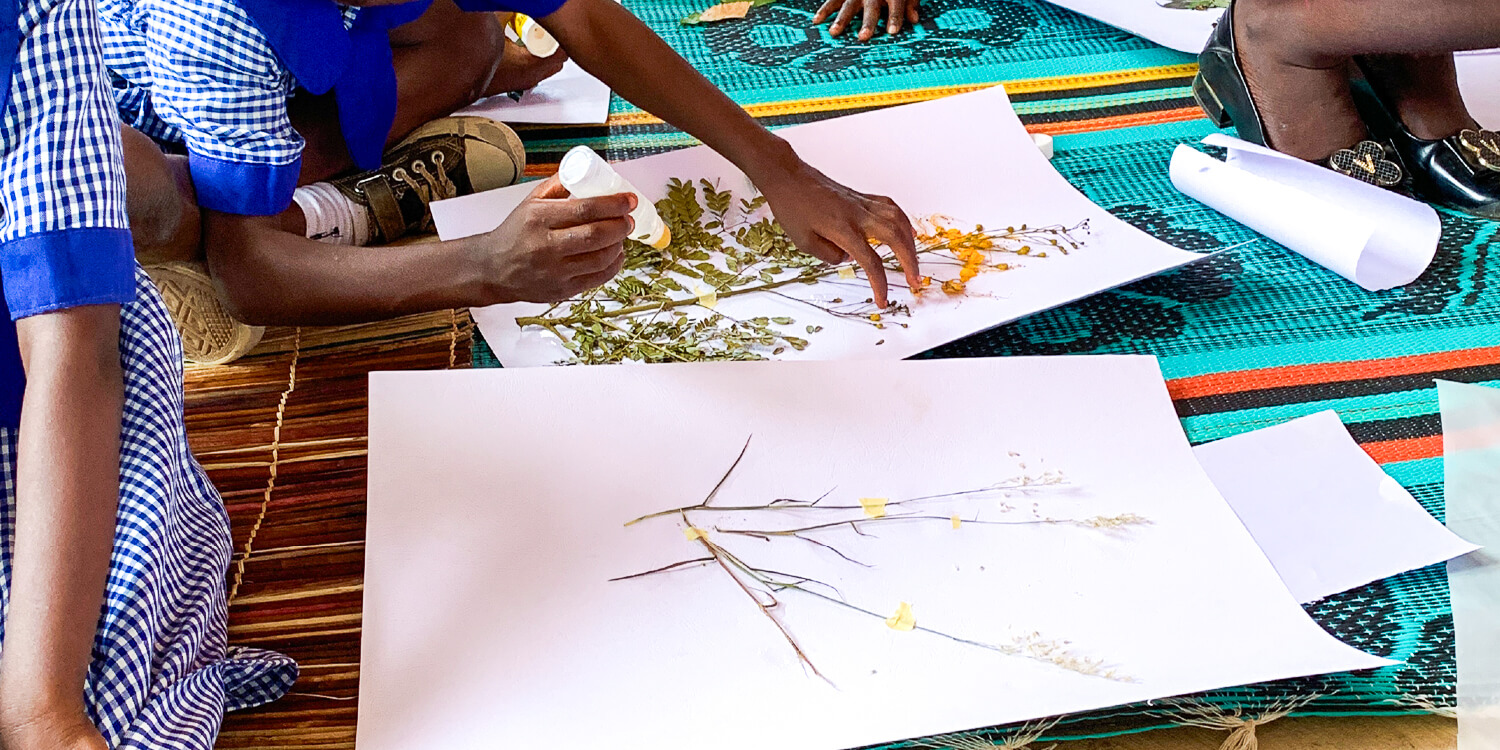
Workshop participants from St John's Primary School in Ikise making a herbarium at Understanding Plants - Botany and Herbarium Practice.
Her second community engagement event invited fellow residents, G.A.S. staff, and members of the local community to a collaborative seed-sowing session titled Spiral Margins/Ecotonal Memories. The event, which centred around a botanical garden she cultivated during her time at the Farm House, marked the culmination of her fieldwork. In her garden, Jonn embraced the “spiral” as both a personal and symbolic form. Inspired by Of Water and the Spirit by Malidoma Somé, Many of the specimens were sourced through community exchange, such as visits to local homes (including Yinka Shonibare CBE RA's mother’s house in Ilupeju), others were purchased from IITA, and several were already growing wild around the farm. A simple bench within the garden invited reflection, anchoring the archive in both memory and presence.
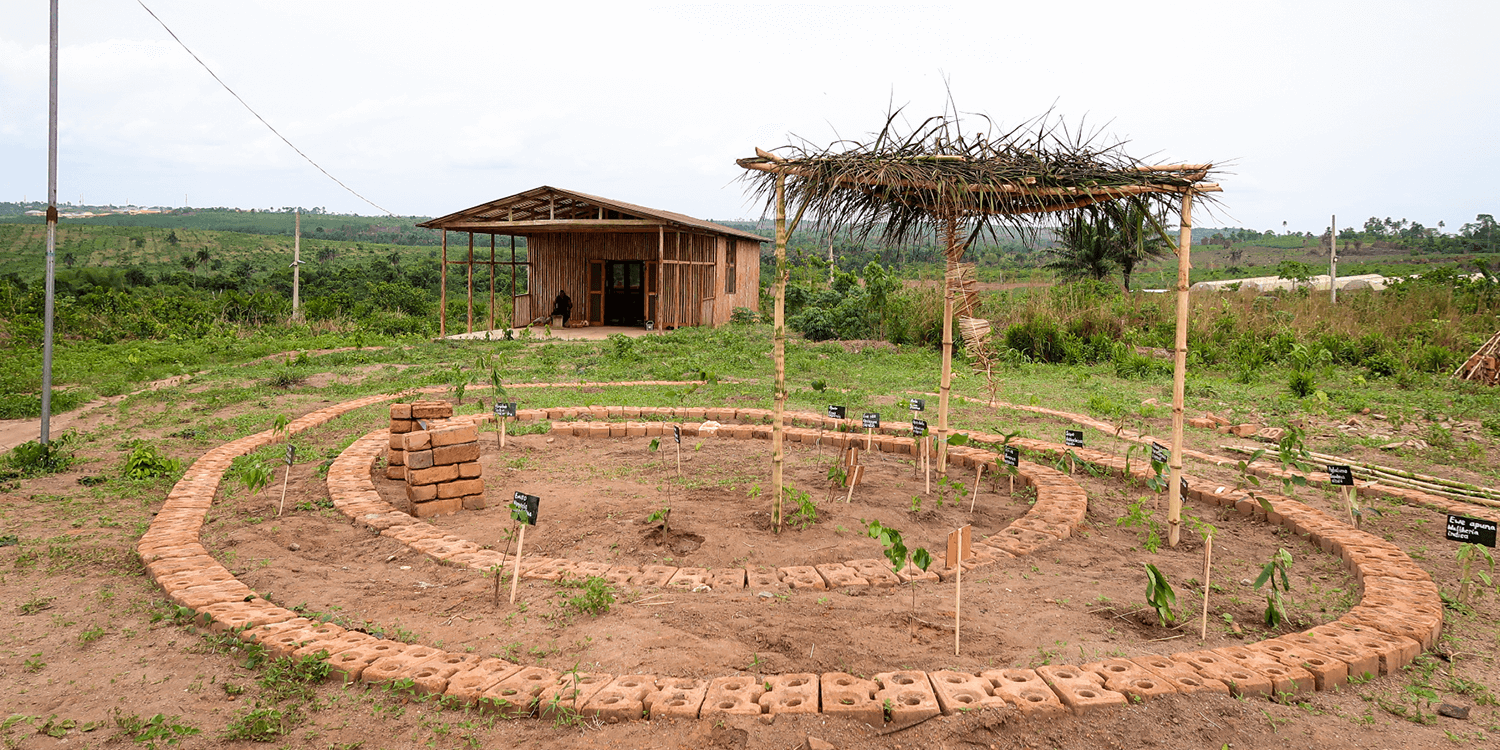
The spiral botanical garden created by Jonn Gale at the G.A.S. Farm House, Ikise.
Our first resident to arrive in March was multidisciplinary artist and photographer Rachel Anyo, who undertook a six-week residency at G.A.S. Foundation in Lagos, where she expanded her exploration of cultural memory, identity, and storytelling through photography, collage, and textile-based practices. Rachel’s time in Lagos was shaped by immersive research into Nigerian art history and material culture, complemented by studio visits with artists such as Amaize Ojeikere and Kelani Abass, and a visit to the Yemisi Shyllon Museum. Her residency culminated in a children's workshop titled Retelling and Creating New Memories, on 3rd May, developed in partnership with The Children’s Art Gallery (TCAG), where participants explored archives and personal histories through collage, contributing to a collective artwork that celebrated intergenerational memory-making. Rachel Anyo’s residency was generously supported by Artis.
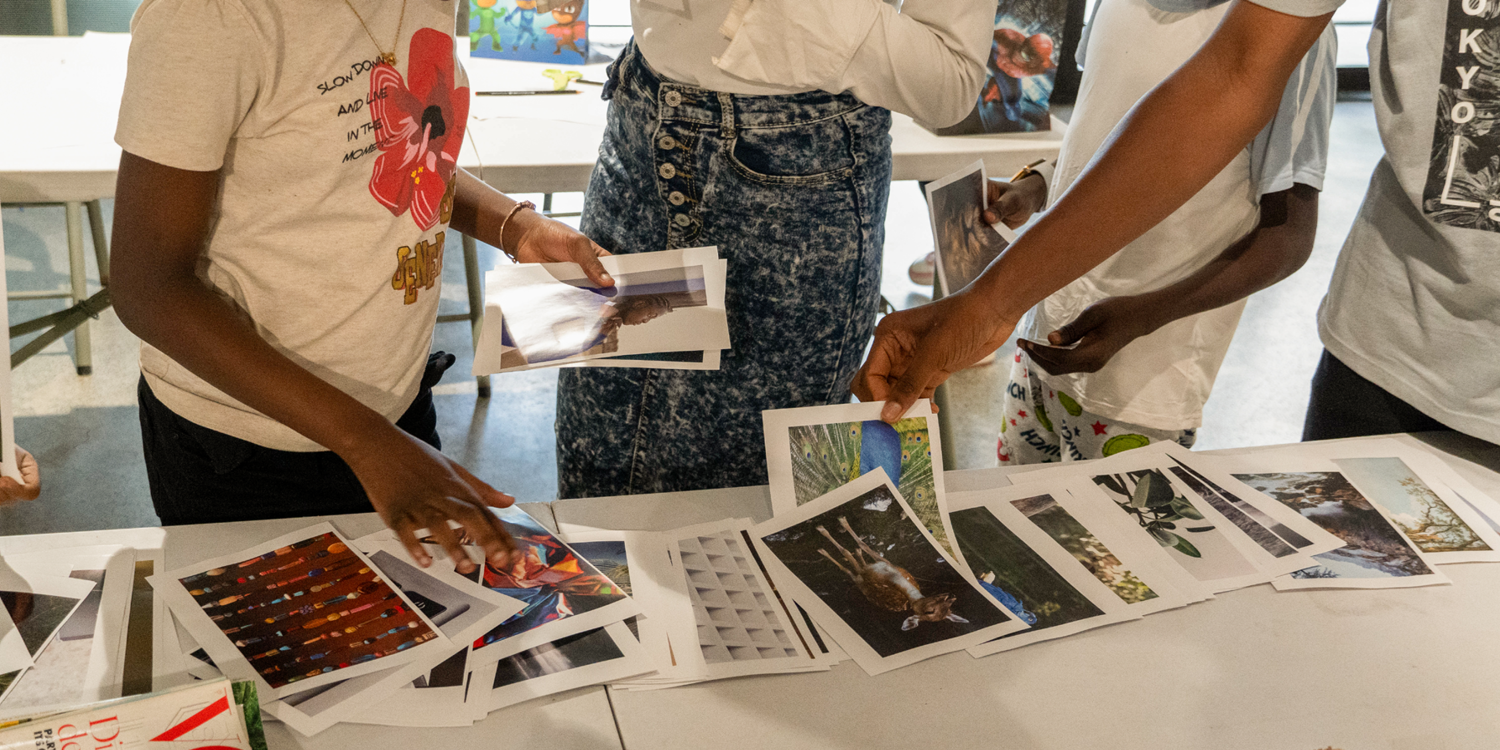 Participants in Retelling and Creating New Memories at the beginning of a collage exercise.
Participants in Retelling and Creating New Memories at the beginning of a collage exercise.
From 10th March to 4th April, 2025, London-based artist Gaia Ozwyn undertook a four-week residency at G.A.S. Foundation in Lagos, where she continued to explore the themes that define her multidisciplinary practice—materiality, ‘otherness’, and belonging—through a tactile dialogue between sculpture and painting. Her time in Lagos was shaped by an immersive engagement with local artistic networks and material cultures. She conducted studio visits with artists Nengi Omoku and Bolaji Ogunrosoye, explored the Ayobo pottery community and sculptor Azeez Afeez’s studio to deepen her research into clay-based techniques, which she incorporates into her paintings, and visited the studio and workshop of Dr. Peju Layiwola.
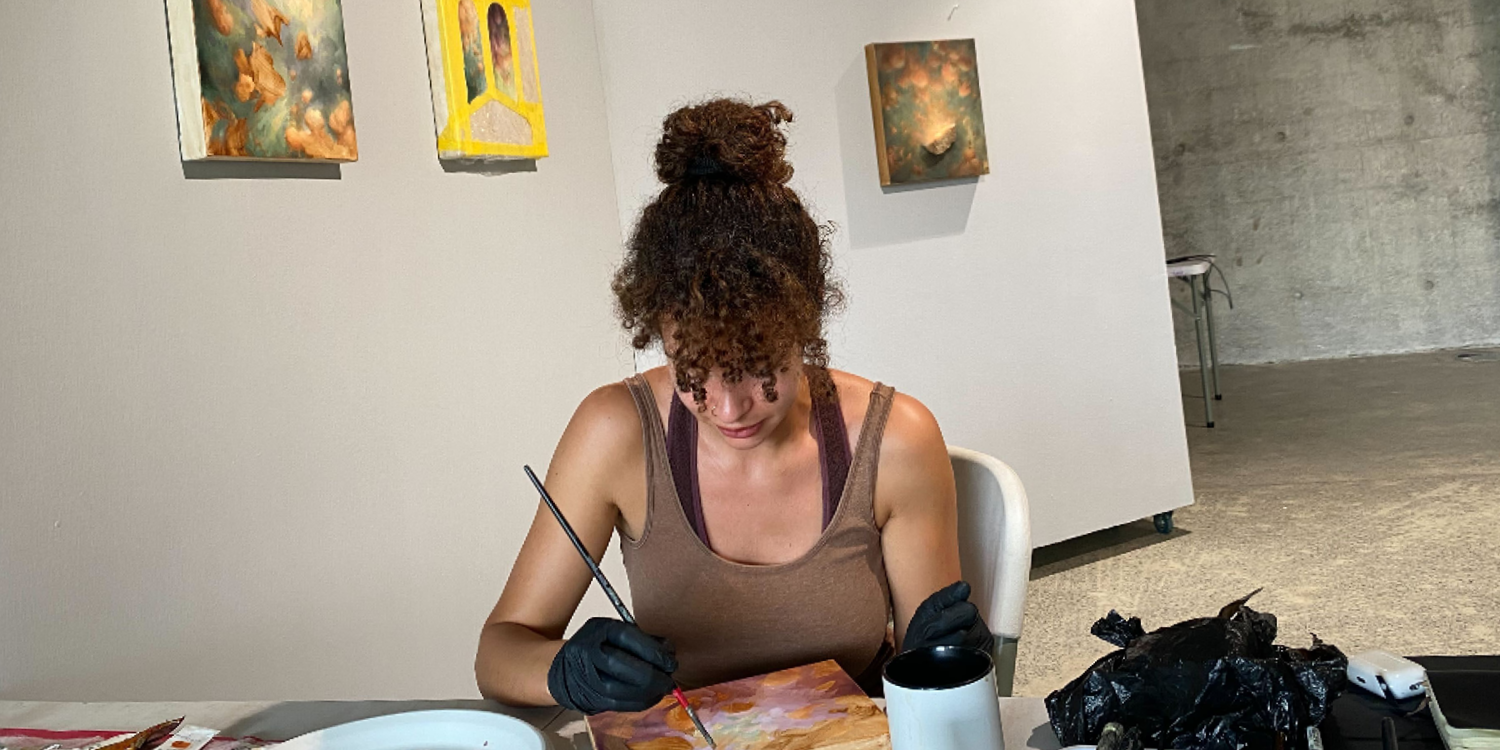
Gaia Ozwyn painting in the studio space at G.A.S. Lagos.
Gaia also attended the +234 Art Fair and engaged in archival research at the G.A.S. Library and Picton Archive. Her residency culminated in a Young Artists' Salon on 3rd April, a group critique session she facilitated for emerging Lagos-based artists, fostering dialogue, reflection, and community exchange. Gaia Ozwyn’s residency was generously supported by the Royal College of Art Association of Black Students, Alumni & Friends (RCA BLK). Alongside Aisha Seriki, this constituted part of our second cohort of the RCA BLK x Yinka Shonibare Residency, which was piloted in 2024 with two spring residencies.
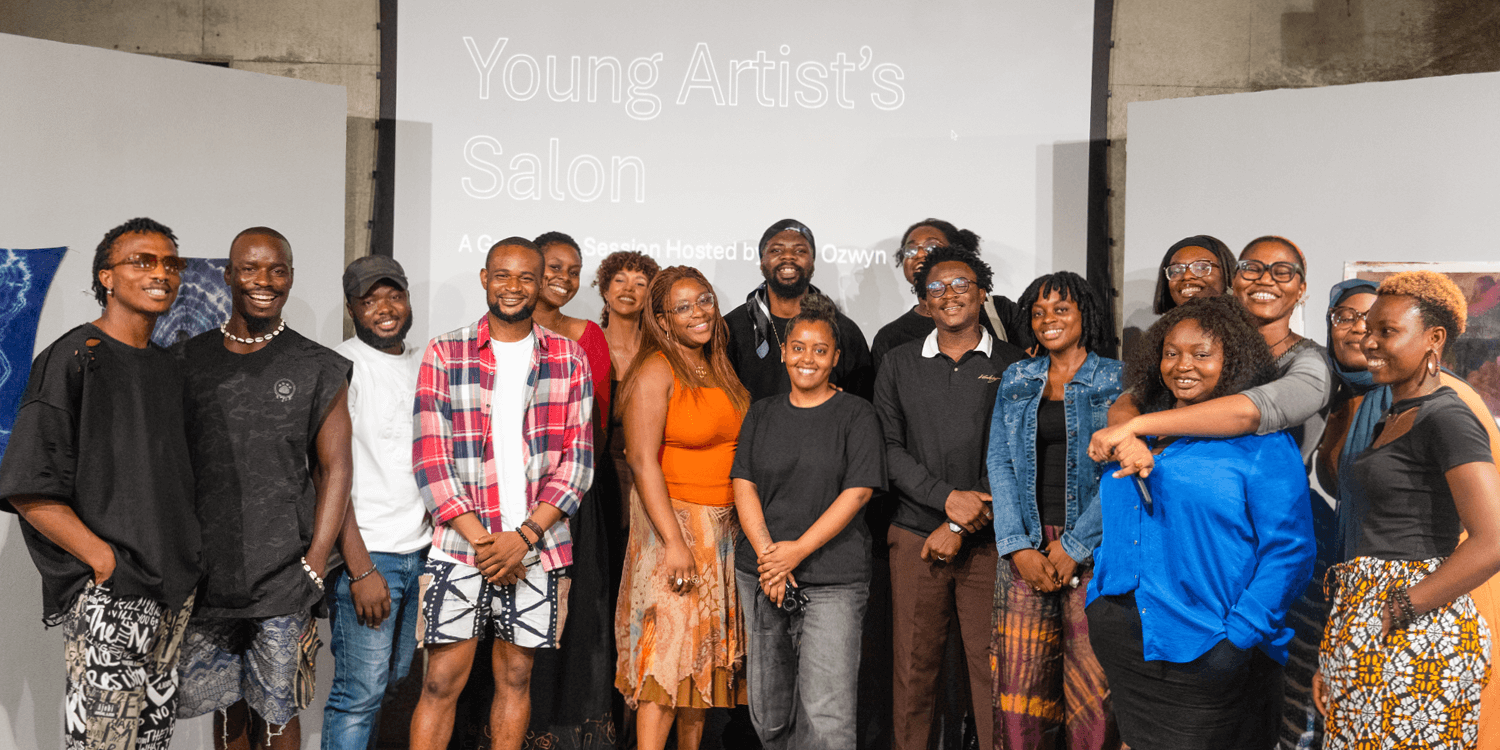 Attendees at the Young Artists' Salon, held on 3rd April 2025.
Attendees at the Young Artists' Salon, held on 3rd April 2025.
From 7th April to 2nd May, 2025, G.A.S. Lagos hosted its second RCA BLK supported resident of the year, multidisciplinary artist Aisha Olamide Seriki, for a month-long residency dedicated to expanding her research into Yoruba material culture and ancestral technologies. Rooted in a practice that fuses fine art photography with sculpture, Aisha’s residency was marked by extensive fieldwork, collaboration, and archival exploration across southern Nigeria. She travelled to Benin City to cast sculpture on Igun Street—the historic bronze-casting quarter and UNESCO World Heritage site—and visited the Museum of West African Art to expand her engagement with contemporary interpretations of traditional practice. In Osogbo, she documented the Osun-Osogbo Sacred Grove during the Ogun festival, photographed the former home of artist Suzanne Wenger, and studied the preservation of Yoruba sacred art.
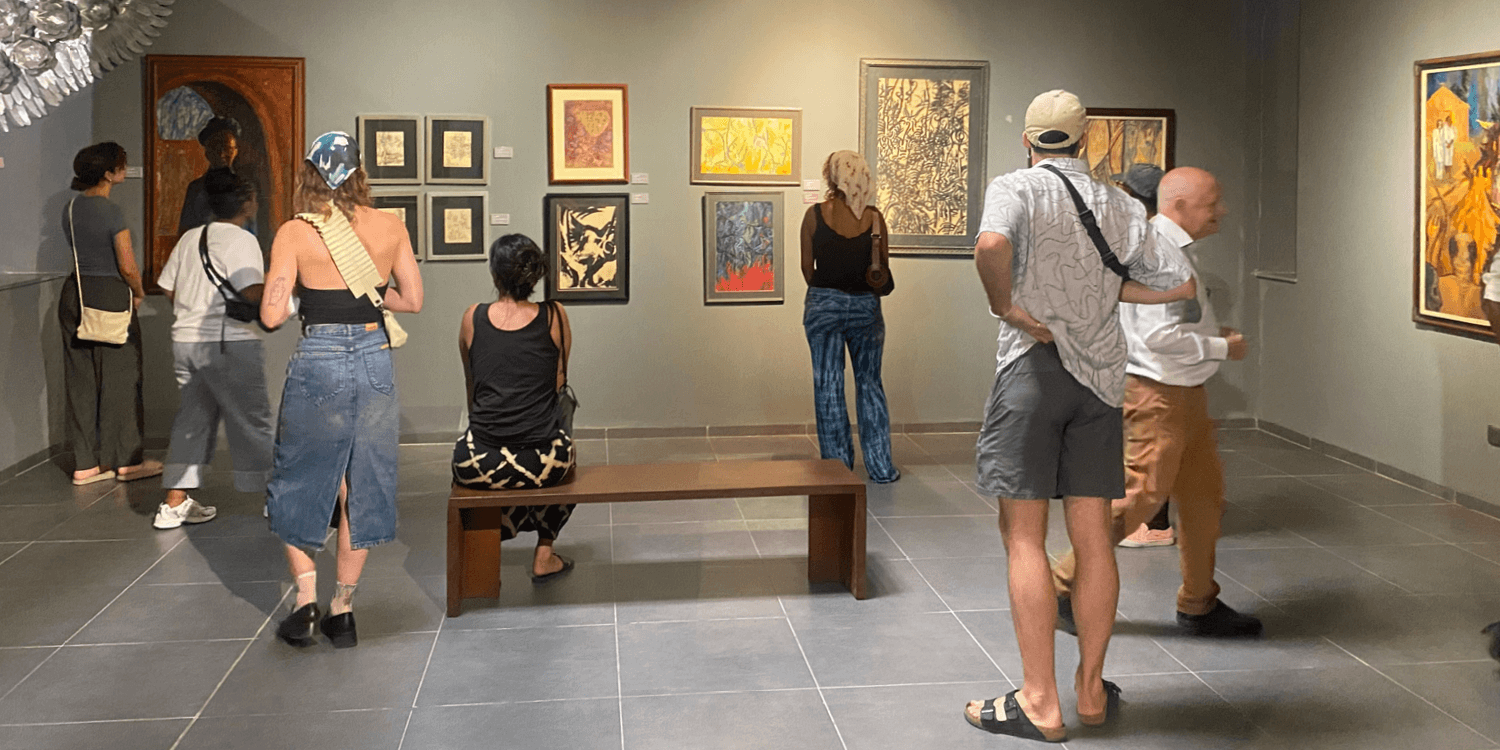 Aisha, Gaia, Jonn, and Joy, during a guided tour of the Yemisi Shyllon Museum of Art in Lagos.
Aisha, Gaia, Jonn, and Joy, during a guided tour of the Yemisi Shyllon Museum of Art in Lagos.
Aisha also conducted a conceptual photoshoot with ballerinas from Leap of Dance Academy in the former slave port of Badagry. She immersed herself in Lagos' art scene through gallery and museum visits, a research visit to the FESTAC '77 archives at CBAAC, and artists' studios, including those of photographers Amaize Ojeikere and Kelani Abass, and the woodcarving studio of Djakou Cassie. The residency culminated in Unearthing the Archive, a public conversation led in collaboration with fellow resident Joy Labinjo at G.A.S. Lagos on 30th April, which brought both artists into dialogue with other creative practitioners working at the intersection of art and archival practice. They included G.A.S. alumna Mobolaji Ogunrosoye and Amaize Ojeikere, a photographer and writer, and son of the legendary J. D. 'Okhai Ojeikere.
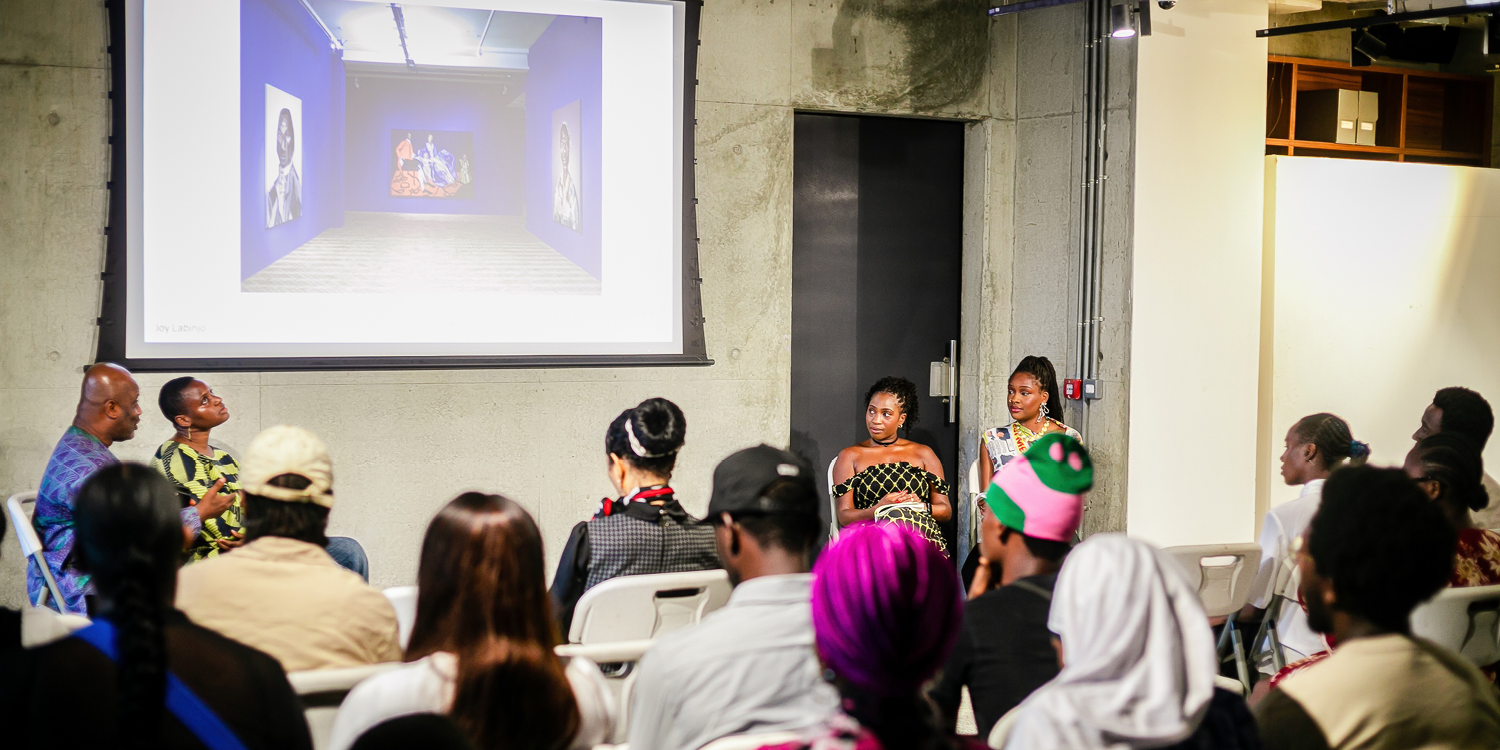 Guests gathered at G.A.S. Lagos for Unearthing the Archive, presented on 30th April, 2025.
Guests gathered at G.A.S. Lagos for Unearthing the Archive, presented on 30th April, 2025.
Between 7th April and 2nd May 2025, Joy Labinjo joined G.A.S. Foundation in Lagos for a month-long residency that offered new perspectives on her ongoing engagement with archives, memory, and historical storytelling. Known for her bold, figurative paintings that draw from personal and collective histories, Joy used the residency to connect with Nigeria’s vibrant artistic community through a series of studio visits with artists including Nengi Omuku, Kelani Abass and Amaezi Ojiekere. She was also able to connect with G.A.S. alumnus Karl Ohiri, who was in Lago on a research trip. She visited the John Randle Centre for Yoruba Art and Culture and made a research trip to Osogbo, where she explored the Osun-Osogbo Sacred Grove and witnessed the Ogun festival. Her time in Lagos culminated in Unearthing the Archive, a public panel discussion held at G.A.S. Lagos on April 30th, where she was in conversation with fellow resident Aisha Seriki. Joy Labinjo’s residency was generously supported by Tiwani Contemporary.
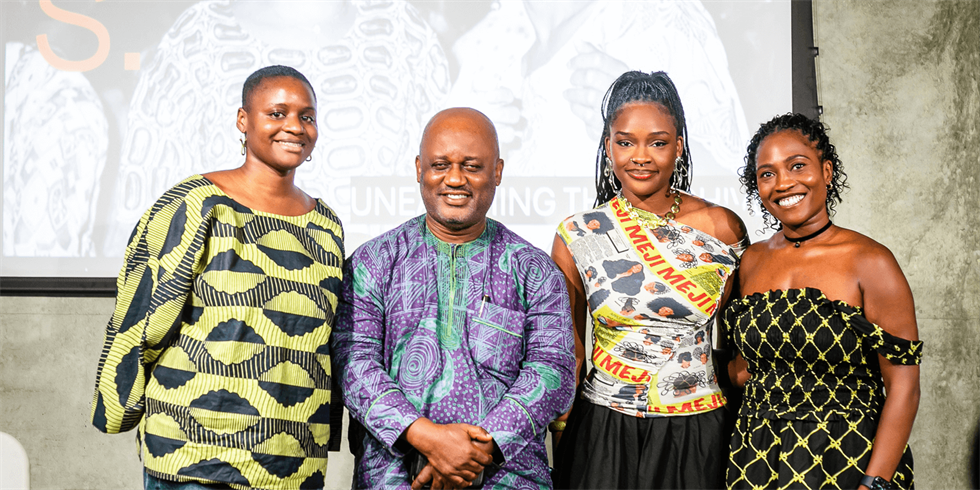
Speakers at Unearthing the Archive, (L-R) Mobolaji Ogunrosoye, Amaize Ojeikere, Aisha Seriki and Joy Labinjo,